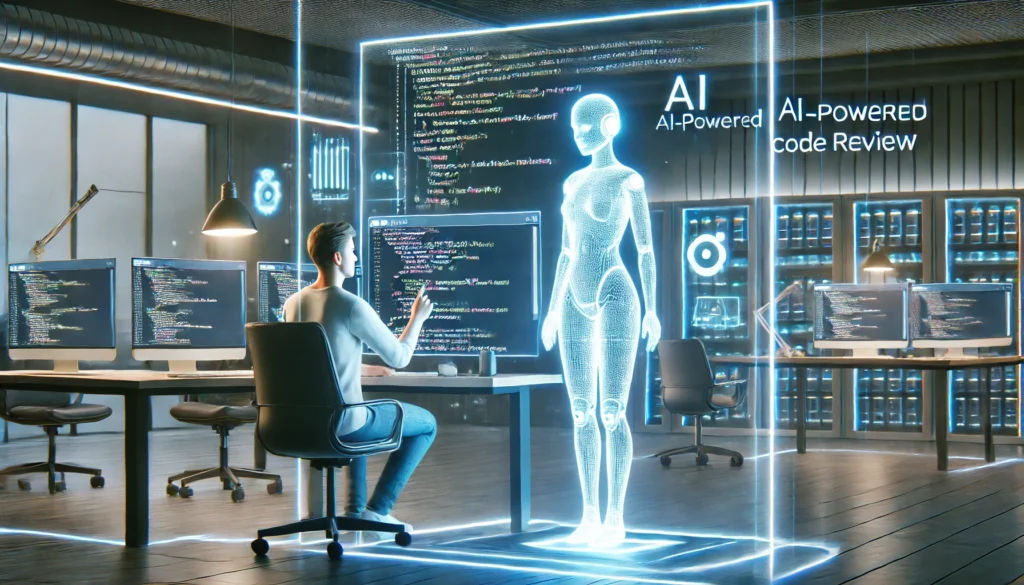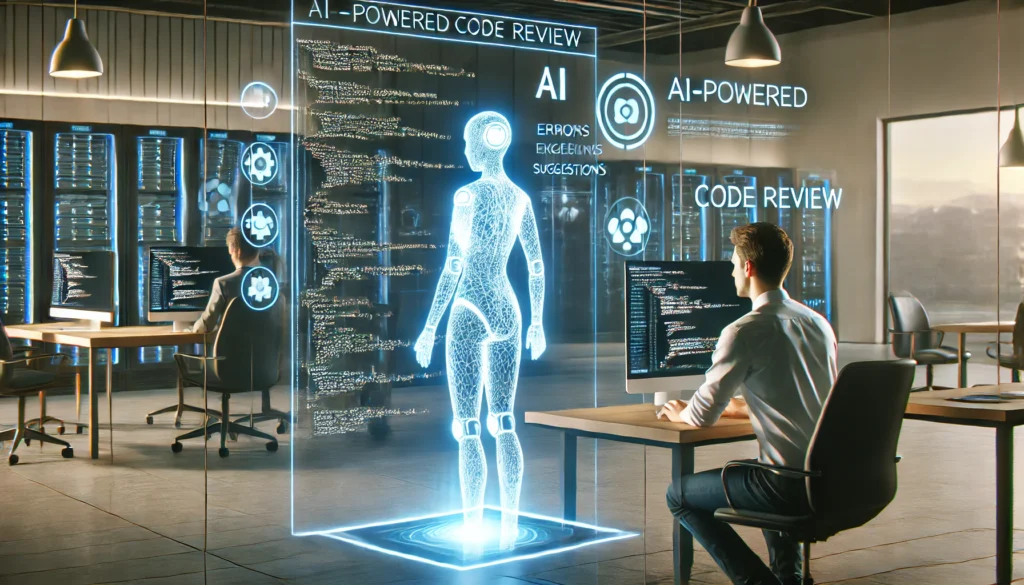
The world of software development is experiencing a seismic shift, thanks to the rapid advancements in Artificial Intelligence (AI) and Machine Learning (ML). Among the many innovations that are changing how developers work, AI-powered code review stands out as a game-changing technology. By blending automation with intelligence, these tools are making code reviews faster, more accurate, and less burdensome for developers everywhere.
In this article, we’ll dive deep into what AI-powered code review is, why it matters, its benefits and challenges, and what the future holds for this transformative technology.
What is AI-Powered Code Review?
At its core, code review is the process of analyzing source code to ensure it meets quality standards, is free of bugs, and aligns with a project’s goals. Traditionally, this was a manual process where experienced developers examined code, identified errors, and suggested improvements. While valuable, this approach is often time-consuming and prone to human error.
AI-powered code review tools revolutionize this process. By leveraging sophisticated machine learning algorithms and natural language processing, these tools can analyze code, detect errors, enforce coding standards, and provide feedback. Importantly, they’re designed to complement human reviewers, not replace them.
Why is AI-Powered Code Review Important?
Code reviews are a cornerstone of high-quality software development. However, they can be tedious and time-intensive, often taking developers away from what they do best: creating innovative solutions. AI-powered code review tools streamline this process, freeing developers to focus on more critical tasks.
Here’s why these tools are becoming indispensable:
- Error Detection: They identify syntax, semantic, and logical errors with high accuracy.
- Coding Standards: They enforce style guides and best practices consistently.
- Constructive Feedback: By offering actionable suggestions, these tools help developers refine their work.
- Efficiency Boost: By automating routine checks, they significantly reduce the time and effort required for code reviews.
The Real-World Benefits of AI-Powered Code Review
The adoption of AI-powered tools brings a plethora of advantages to teams and individual developers alike:
- Improved Code Quality: These tools ensure that code is efficient, maintainable, and free from common errors. This leads to better-performing applications and fewer bugs post-deployment.
- Increased Productivity: Developers no longer need to spend hours combing through lines of code. With AI handling repetitive tasks, teams can move faster without compromising quality.
- Real-Time Feedback: Many AI tools integrate with Integrated Development Environments (IDEs), allowing developers to receive immediate feedback as they write code. This minimizes the need for lengthy reviews after the fact.
- Skill Development: For junior developers, these tools act as mentors, providing explanations and examples that help them learn and grow.
- Cost Savings: By catching issues early in the development process, companies can avoid the high costs associated with fixing bugs in later stages.
- Reduced Workload: With AI managing much of the grunt work, senior developers can focus on more complex tasks and strategic decisions.
Challenges and Limitations to Consider
Despite their benefits, AI-powered code review tools are not without their challenges. Like any technology, they come with limitations:
- Accuracy and Reliability: While impressive, these tools are not perfect. They may miss certain context-specific errors or flag irrelevant issues.
- Dependence on Training Data: The quality of AI recommendations depends on the data it has been trained on. Incomplete or biased training datasets can lead to subpar results.
- Context Understanding: AI struggles with nuanced understanding. Complex or creative code solutions may confuse these tools, leading to inaccurate feedback.
- Workflow Adjustments: Integrating AI-powered tools often requires changes to established workflows, which can be met with resistance.
- Security Concerns: These tools need access to sensitive code, raising potential privacy and security issues.
- Skill Erosion: Over-reliance on AI could hinder the development of critical thinking and problem-solving skills, especially among junior developers.

The Future of AI-Powered Code Review
As with all technology, AI-powered code review tools are evolving rapidly. The future promises exciting advancements that will make these tools even more powerful and versatile:
- Enhanced Contextual Understanding: AI will become better at understanding the intent behind code, leading to more accurate suggestions and fewer false positives.
- Multi-Language and Framework Support: Future tools will work seamlessly across different programming languages and frameworks, making them universally applicable.
- Secure Coding Practices: As privacy concerns grow, these tools will prioritize secure practices and ensure sensitive data is handled responsibly.
- Expanded Capabilities: Beyond code reviews, AI tools could play a role in architecture design, testing, and deployment processes.
- Hybrid Systems: Combining the speed of AI with the expertise of human reviewers could result in unparalleled code quality and efficiency.
Real-World Applications of AI-Powered Code Review
AI-powered tools are already making waves in various settings:
- Startups and Small Teams: These tools enable lean teams to produce high-quality code without needing a large group of senior developers.
- Enterprise Development: In large organizations, they ensure consistent code quality across diverse teams and reduce the burden on senior engineers.
- Open-Source Projects: AI acts as an initial filter for code submissions, ensuring they meet project standards before human review.
- Education: Coding bootcamps and universities use these tools to provide students with instant feedback, helping them avoid common mistakes and accelerate their learning.
AI-powered code review is not just a tool; it’s a transformative force in software development. By automating tedious tasks and enhancing human capabilities, it allows developers to focus on what truly matters: building innovative, high-quality solutions. While challenges remain, the benefits far outweigh the limitations. As these tools continue to evolve, they promise a future where software development is faster, more efficient, and more reliable than ever before.
The journey has just begun, and the possibilities are endless. Are you ready to embrace the revolution?
Author
Manahil Shoaib




